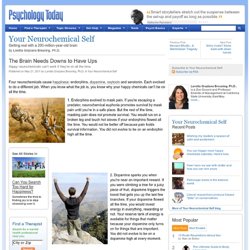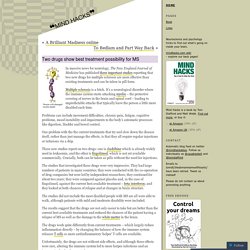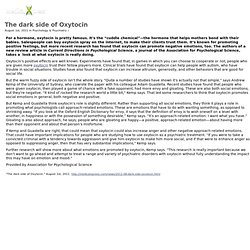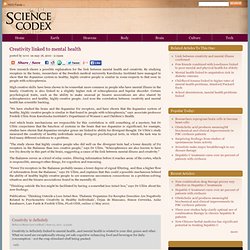

Shaman : ce qu’un Shaman voit dans un hôpital psychiatrique. Selon la vision chamanique, les maladies mentales indiquent « la naissance d’un guérisseur », explique Patrice Malidoma Somé.

Ainsi, on doit considérer les troubles mentaux comme des urgences et des crises spirituelles pour aider le guérisseur lors de sa naissance.Ce qui est perçu comme « un maladie mentale » dans l’Occident est considéré comme « de bonnes nouvelles de l’autre monde » par le peuple de Dagara. La personne confrontée à la crise a été choisie comme un moyen de communication afin de faire passer un message du monde spirituel à la communauté qui l’entoure. «Les troubles mentaux et toutes les autres sortes de troubles du comportement signalent que deux énergies incompatibles évidentes ont été fusionnées au sein du même concept », explique le Dr Somé. «J’étais tellement choqué. C’était la première fois que j’étais confronté à de telles mesures faites aux personnes présentant les mêmes symptômes que certains dans mon village ». Drugs effects. Burundanga: The Drug Against Free Will. Super Brain - Part 1 of 8. The brain needs downs to have ups.
Four neurochemicals cause happiness : endorphins, dopamine , oxytocin and serotonin.

Each evolved to do a different job. When you know what the job is, you know why your happy chemicals can't be on all the time. 1. Endorphins evolved to mask pain. If you're escaping a predator, neurochemical euphoria promotes survival by mask pain until you're in a safe place. 2. Happy chemicals evolved to alert us to survival-relevant information around us. Yet it's natural to desire more happy chemicals and to do everything possible to stimulate them. Two drugs show best treatment possibility for MS. In massive news for neurology, The New England Journal of Medicine has published three important studies reporting that two new drugs for multiple sclerosis are more effective than existing treatments and can be taken in pill form.

Multiple sclerosis is a bitch. It’s a neurological disorder where the immune system starts attacking myelin – the protective covering of nerves in the brain and spinal cord – leading to unpredictable attacks that typically leave the person a little more disabled each time. Problems can include movement difficulties, chronic pain, fatigue, cognitive problems, mood instability and impairments to the body’s automatic processes like digestion, bladder and bowel control. One problem with the the current treatments that try and slow down the disease itself, rather than just manage the effects, is that they all require regular injections or infusions via a drip. The studies that investigated these drugs were very impressive. The dark side of Oxytocin.
August 1st, 2011 in Psychology & Psychiatry / For a hormone, oxytocin is pretty famous.

It’s the “cuddle chemical”—the hormone that helps mothers bond with their babies. Salespeople can buy oxytocin spray on the internet, to make their clients trust them. It’s known for promoting positive feelings, but more recent research has found that oxytocin can promote negative emotions, too. The authors of a new review article in Current Directions in Psychological Science, a journal of the Association for Psychological Science, takes a look at what oxytocin is really doing. The fine dopamine line between creativity and schizophrenia.
New research shows a possible explanation for the link between mental health and creativity.

By studying receptors in the brain, researchers at the Swedish medical university Karolinska Institutet have managed to show that the dopamine system in healthy, highly creative people is similar in some respects to that seen in people with schizophrenia. High creative skills have been shown to be somewhat more common in people who have mental illness in the family. Creativity is also linked to a slightly higher risk of schizophrenia and bipolar disorder. Serotonin, Social Interaction and Making Decisions. The role of specific neurotransmitters and neurotransmitter circuits in decision making is being explored in a variety of ways. Dopamine appears to have significant research support for a key role in making decisions related to reward.The role of serotonin in decision making is less well studied but also appears to be important. Robert Rogers, Ph.D. recently presented some of his lab's research at the Warren Frontiers in Neuroscience lecture in Tulsa, Oklahoma.
(Additionally, I have reviewed and placed a link to a recent research manuscript from Dr. Rogers related to topic below.)Dr. Rogers noted the relationship between serotonin, depression and social function include these research findings:Social isolation is a known risk factor for major depressionSerotonin appears important in developing nourishing social contactsSocial isolation found in anxiety and depression may be mediated by serotonin mechanisms Dr. Photo of Coopers Hawk from the author's private collection. Rogers RD (2011).